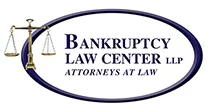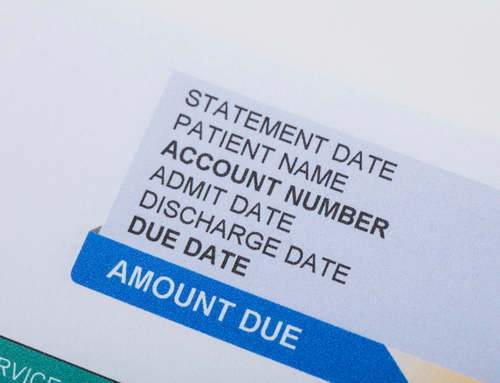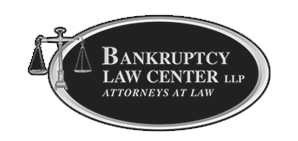 At the Bankruptcy Law Center LLP, we understand that bankruptcy is a complicated process and each case requires careful attention to detail. Let’s face it: filing bankruptcy is a big deal, and you want to make sure it is done correctly. In addition to taking time to accurately discover all of the pertinent facts about your financial situation, we strive to discover each of our clients’ goals to ensure a successful outcome. But not all law firms take the time and care necessary for a successful bankruptcy. Beware of the bankruptcy mills, as they are more common than you may think.
At the Bankruptcy Law Center LLP, we understand that bankruptcy is a complicated process and each case requires careful attention to detail. Let’s face it: filing bankruptcy is a big deal, and you want to make sure it is done correctly. In addition to taking time to accurately discover all of the pertinent facts about your financial situation, we strive to discover each of our clients’ goals to ensure a successful outcome. But not all law firms take the time and care necessary for a successful bankruptcy. Beware of the bankruptcy mills, as they are more common than you may think.
Avoid using a bankruptcy law firm that is a bankruptcy mill. Here are some red flags.
What Is a Bankruptcy Mill?
A bankruptcy mill is a law practice that files a large number of bankruptcy cases without providing high quality legal service. Most bankruptcy mills share the following characteristics:
- heavy advertising (typically on television and radio)
- large number of bankruptcy cases filed each month
- little or no contact between clients and attorneys
- reliance on non-lawyer support staff (such as paralegals or legal secretaries) to complete most aspects of the bankruptcy filing process
- one-size-fits-all bankruptcies with no personal attention, and
- failure to file documents on time or come to court hearings prepared.
How Does a Bankruptcy Mill Work?
The business model of most bankruptcy mills relies on aggressive advertising and filing as many cases as possible. When a potential client comes in for a consultation, he or she will often meet with an intake specialist or coordinator (who may or may not be an attorney) as opposed to the lawyer who will handle the case. The primary job of the intake specialist is to get the client to pay a fee and sign a retainer agreement (a contract to employ the law firm to file the bankruptcy).
During the intake process, there is usually little or no discussion about the client’s individual goals, circumstances, or concerns about bankruptcy. After the client retains the law firm, non-attorney support staff complete most of the bankruptcy paperwork and file the case.
In most cases, debtors don’t actually meet their attorney until the meeting of creditors, or the attorney that shows up at the meeting of creditors will be one who is unfamiliar with their case.
Disadvantages of Using a Bankruptcy Mill
The following are some of the common drawbacks to using a bankruptcy mill.
Little to No Personal Attention
Because bankruptcy mills must take on a large number of clients to pay for high advertising and overhead costs, they focus on filing cookie-cutter, one-size-fits-all bankruptcies. But bankruptcy is a complex process that must be tailored to fit each debtor’s individual circumstances to maximize its benefit.
Unfortunately, many bankruptcy mills spend little or no time focusing on the debtor’s individual needs or circumstances and end up filing bankruptcies that are not in the client’s best interest.
Mistakes on the Bankruptcy Paperwork
Bankruptcy mills typically use non-attorney support staff to:
- gather the necessary information from the debtor
- prepare the bankruptcy paperwork, and
- file the case with the court.
In addition to the lack of personal attention, this often leads to mistakes that negatively affect the debtor’s case and cause unnecessary delays or problems.
You May Not Meet Your Attorney Before Your Court Hearing
Because the bankruptcy process requires you to complete a lengthy set of forms and provide detailed financial information, being able to communicate with your attorney makes a big difference in how successful your case is. In many bankruptcy mills, debtors often meet their attorney for the first time at their meeting of creditors.
In most cases, the attorney that shows up has several other hearings he or she must attend and has limited knowledge about each case. For this reason, many debtors experience problems during the meeting of creditors and the bankruptcy trustee ends up continuing the hearing to fix mistakes.
Fees May Be Higher
Bankruptcy mills often have extremely high advertising costs that are passed on to their clients. While many bankruptcy mills advertise low prices on their ads, the lowest advertised price typically only applies to single debtors who have little or no income or property.
If you have a slightly more complicated bankruptcy, a bankruptcy mill’s fees may actually be higher than those charged by small firms or solo practitioners in your area.
How to Avoid Bankruptcy Mills
Below are some of the red flags you should look for and questions you should ask to avoid hiring a bankruptcy mill.
Bankruptcy Mill Red Flags
While aggressive advertising can be a red flag, it doesn’t always mean that a law firm is a bankruptcy mill. But you are likely dealing with a bankruptcy mill if the person you talk to:
- isn’t an attorney and won’t let you speak to an attorney
- tells you that bankruptcy is the right choice without asking many questions about your circumstances
- doesn’t explain the filing process or advise you on what type of bankruptcy is in your best interest, or
- doesn’t answer your questions or address your concerns.
Questions to Ask a Bankruptcy Firm
In general, one of the best ways to determine if you are dealing with a bankruptcy mill is to ask questions at the first consultation. The following are some of the most important questions you should ask at your appointment:
- Are you an attorney?
- Are you the attorney who will handle my bankruptcy and go to court with me?
- How many bankruptcy cases do you file per month?
- How many bankruptcy cases does each attorney handle?
- When will I meet my attorney?
- What type of bankruptcy is right for me? And why?
- How does the filing process work?
- When will you file my bankruptcy?
- Who prepares my bankruptcy paperwork and files my case?
- Who do I speak to if I have a question?
At the Bankruptcy Law Center LLP, our attorneys have several years of experience to provide exceptional bankruptcy representation, yet we are small enough so that we are able to give each case the attention it deserves. Feel free to call us at (414) 257-1900 for more information.





